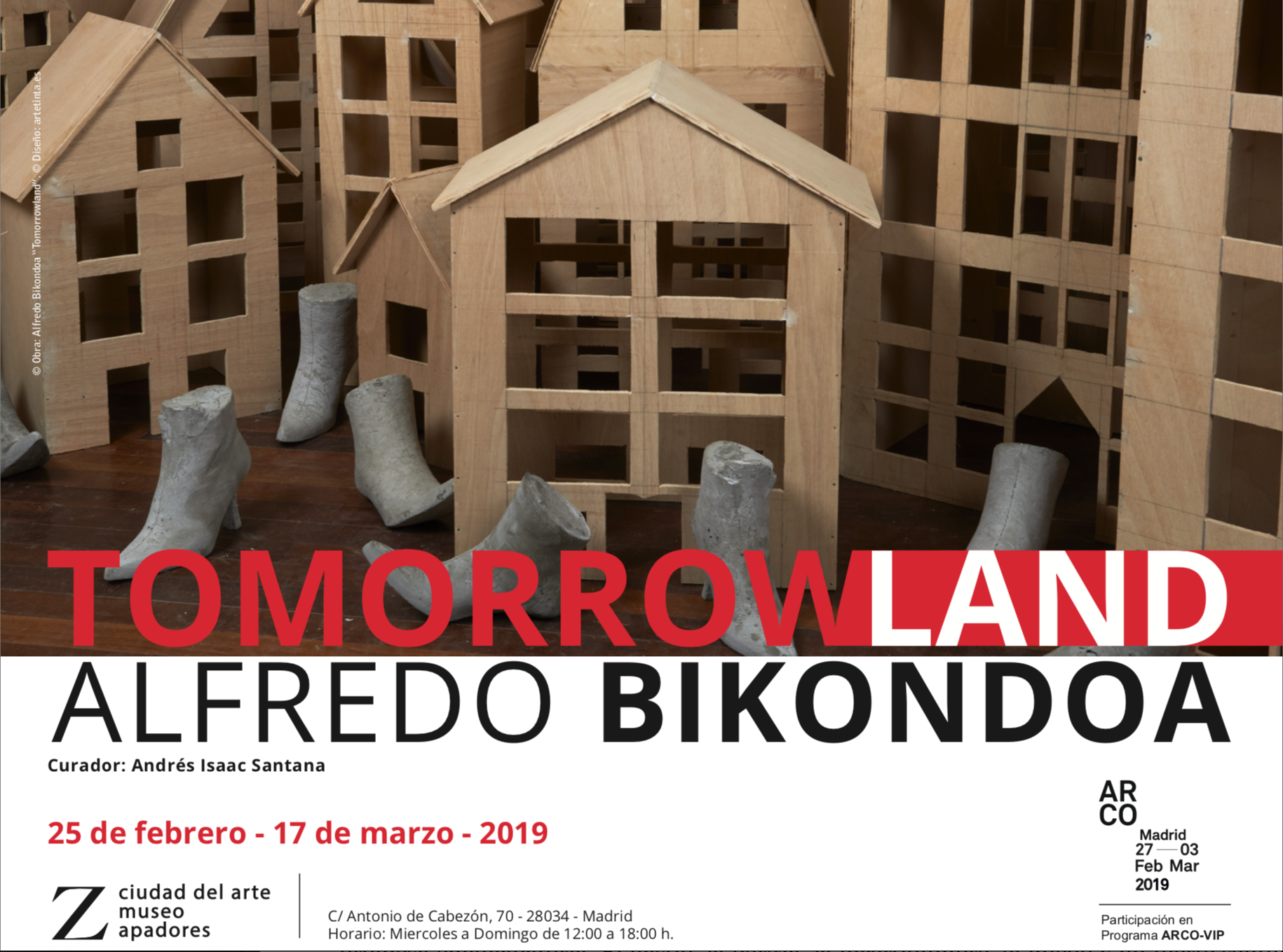
A powerful installation by the Basque artist Alfredo Bikondoa, conceived exclusively for the Torre Sur Zapadores Ciudad del Arte art facility. The work, as its name suggests, alludes to the possibility of a better place, a better land, a better space, a better world. Its conceptual enclave revolves around the idea of “procuring” and “stimulating” other models of planetary coexistence, other norms of conscience and full action. The house, reproduced in a thousand forms and on a thousand scales, thereby becomes a great allegory of our home, understood as our world, increasingly besieged by practices of destruction, vassalage, control and submission. The promise is nothing but a farce, a biting irony about reality, multiplied in infinite mirrors, a way of sounding the alarm about the terrorism of all advertising claims and their rhetorical and persuasive artifices. The music heard in this promised land is not electronic, in all its variants; it is, rather, that of shame and the expanded weeping of those who have lost their homes and, with them, all illusions of faith. The music of Tomorrowland is the voice of sadness, of failure, of lies, as the bleak panorama of an uncertain present tinges any promise of emancipation with bitterness. Boredom, laziness, uncertainty, fear and a strong sense of loss and moral breakdown shape a subjectivity that is always fleeing, waiting for a journey, an escape somewhere; a subjectivity that has understood, in the end, that scepticism and utopia are two theatrical sides of the same face. At the end of every promise, of every instinct for conservation, of every dream, the true truth is revealed: tomorrowland is but the permanent state of a Continuous War.
Andres Isaac Santana
TOMORROWLAND
ALFREDO BIKONDOA
25 de febrero – 17 de marzo – 2019
Potente instalación del artista vasco Alfredo Bikondoa concebida, en exclusiva, para la Torre Sur Zapadores Ciudad del Arte. La pieza, como su nombre indica, alude a la posibilidad de un sitio mejor, una tierra mejor, un espacio mejor, un mundo mejor. Su enclave conceptual gira entorno a la idea de “procurar” y “estimular” otros modelos de convivencia planetaria, otros estatutos de la conciencia y la actuación plena. La casa, reproducida en mil formas y escalas, se convierte, por tanto, en una gran alegoría de nuestro hogar entendido éste como nuestro mundo. Ese al que, precisamente, se asedia cada vez más con prácticas de destrucción y de vasallaje, control y sumisión. La promesa no es sino una farsa, una hiriente ironía sobre la realidad multiplicada en infinitos espejos, un modo de alertar -si acaso- sobre la dimensión terrorista de todo reclamo publicitario y de sus bastiones retóricos y de persuasión. La música que suena en esta tierra prometida no es la de estilo electrónica en todas sus variantes; es, por el contrario, la de la vergüenza y el llanto expandido de los que se han perdido el hogar y con él todo espejismo de fe. La música de Tomorrowland es la voz de la tristeza, del fracaso, de la mentira. El panorama desolador de un presente incierto tiñe de amargura cualquier promesa emancipatoria. El hastío, la pereza, la incertidumbre, el miedo y un fuerte sentimiento de pérdida y de quiebre moral modelan los perfiles de una subjetividad siempre en fuga, a la espera de un viaje, de una salida hacia alguna parte. Una subjetividad que ha comprendido, al cabo, que el escepticismo y la utopía son dos variantes teatrales de un mismo rostro. Al final de toda promesa, de todo instinto de conservación, de todo sueño, se revela la auténtica verdad: la tierra del mañana no es sino el estado permanente de una GuerraContinua.
Curador: Andrés Isaac Santana

